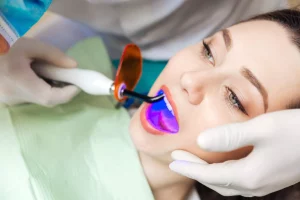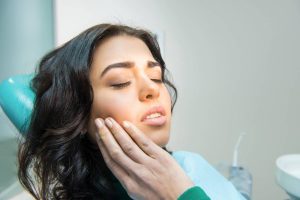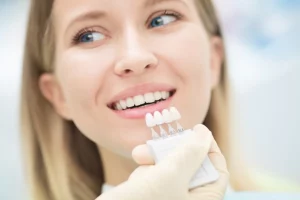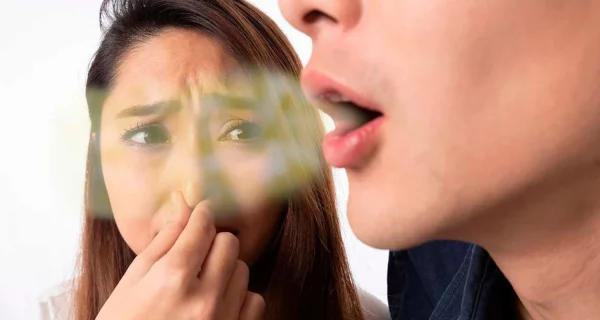Last Updated on: 13th December 2025, 07:34 am
Have you ever pondered the role of hormones, the subtle yet powerful conductors of our bodily functions, and their influence on something as precise as oral health? Hormones in women’s oral health reveal how the hormonal roller coaster experienced during different life stages can significantly impact oral well-being
Understanding Hormones

- The role of hormones: Hormones are biochemical messengers produced by the endocrine glands. They control and coordinate activities throughout the body, including growth, metabolism, mood, and reproduction.
- Hormones and Women’s Health: In women, fluctuations in hormone levels occur during different stages of life – puberty, menstruation, pregnancy, and menopause. Each phase poses unique impacts on overall health, including oral health.
Hormonal Stages in a Woman’s Life

- Puberty: As girls hit puberty, the increased levels of estrogen and progesterone boost blood circulation to the gums, making them more susceptible to irritation and disease.
- Menstruation: Some women experience menstruation gingivitis, marked by swollen, bleeding gums a few days before their period due to the rise in the progesterone level.
- Pregnancy: Hormonal changes during pregnancy can exacerbate conditions like gingivitis (pregnancy gingivitis) and granulomas, commonly referred to as “pregnancy tumors”.
- Menopause: Declining estrogen levels during menopause may lead to dry mouth and bone loss, increasing the risk of oral health problems.
How do Hormones in Women’s Oral Health affect?
- Hormones and gum health: Fluctuating hormones can make the gums more vulnerable to plaque, leading to inflammation, bleeding, and gingivitis. To learn more about the different kinds of gingivitis, you can check our separate guide about it.
- Hormones and oral tissue: Hormonal changes may cause alterations in oral tissue, resulting in conditions like mouth ulcers and dry mouth. Curious as to what are the causes and treatments of canker sores, know more by clicking here.
- Hormones and oral diseases: Increased hormonal levels can enhance the risk of oral diseases such as periodontitis, a severe gum infection that damages the soft tissue and destroys the bone that supports the teeth.
Prevention and Oral Health Maintenance
- Regular check-ups: Frequent dental check-ups enable early detection and treatment of potential oral health issues.
- Oral hygiene practices: Maintaining a rigorous oral hygiene routine, including brushing twice a day, flossing, and using mouthwash can help keep hormonal oral health issues at bay.
- Balanced diet and nutrition: A healthy diet rich in vitamins and minerals strengthens the immune system and supports oral health.



Remember that the dentist is the right person to advise you on the habits you must maintain, so do not hesitate to visit your dentist’s office frequently.
Contact Us
If you have any questions about dental conditions or other topics, you can contact us at Channel Islands Family Dental as well as our page on Facebook. We look forward to your visit and we will make a timely diagnosis. Our dentists in Oxnard, Santa Paula, Ventura, Newbury Park, and Port Hueneme will be able to guide you toward the best treatment to take care of your health and give you back your best smile.
Frequently Asked Questions (FAQ)
Hormonal changes in women can influence oral health, increasing the vulnerability to gum diseases, dry mouth, and mouth ulcers.
Yes, hormonal changes during pregnancy can exacerbate conditions like gingivitis and granulomas.
By maintaining a rigorous oral hygiene routine, getting regular dental check-ups, and eating a balanced diet.
Yes, declining estrogen levels during menopause can lead to dry mouth and bone loss, potentially impacting oral health.
It’s a condition where gums become swollen and bleed a few days before the period due to the increased progesterone level.
Bibliography
- Lukacs, J. R., & Largaespada, L. L. (2006). Explaining sex differences in dental caries prevalence: Saliva, hormones, and “life-history” etiologies. American Journal of Human Biology, 18(4), 540-555. DOI: 10.1002/ajhb.20530
- Kalkwarf, K. L., & Kaldahl, W. B. (1996). Effect of oral contraceptive therapy on gingival inflammation in humans. Journal of Periodontology, 67(6), 545-550. DOI: 10.1902/jop.1996.67.6.545
- Mascarenhas, P., Gapski, R., Al‐Shammari, K., & Wang, H. L. (2003). Influence of sex hormones on the periodontium. Journal of Clinical Periodontology, 30(8), 671-681. DOI: 10.1034/j.1600-051X.2003.00034.x
- Soory, M. (2000). Hormonal factors in periodontal disease. Dental Update, 27(6), 380-385. DOI: 10.12968/denu.2000.27.8.380
- Kumar, P. S. (2013). Sex and the subgingival microbiome: Do female sex steroids affect periodontal bacteria? Periodontology 2000, 61(1), 103-124. DOI: 10.1111/j.1600-0757.2011.00413.x
- Gürsoy, M., Pajukanta, R., Sorsa, T., & Könönen, E. (2013). Clinical changes in periodontium during pregnancy and post-partum. Journal of Clinical Periodontology, 40(7), 665-673. DOI: 10.1111/jcpe.12101
- Furuichi, Y., Shimotsu, A., Ito, H., Namiki, H., Kanda, S., & Ida, H. (2012). Associations of periodontal damage and tooth loss with atherogenic factors among patients with type 2 diabetes mellitus. Internal medicine, 51(8), 839-845. DOI: 10.2169/internalmedicine.51.6488
- Mariotti, A. (1994). Sex steroid hormones and cell dynamics in the periodontium. Critical reviews in oral biology & medicine, 5(1), 27-53. DOI: 10.1177/10454411940050010201
- Jepsen, S., Deschner, J., Braun, A., Schwarz, F., & Eberhard, J. (2011). The pathogenesis of periodontal diseases. Journal of Clinical Periodontology, 38, 8-20. DOI: 10.1111/j.1600-051X.2010.01698.x
- Freudenheim, J. L., Genco, R. J., LaMonte, M. J., Millen, A. E., Hovey, K. M., Mai, X., Nwizu, N., Andrews, C. A., Wactawski-Wende, J. (2016). Periodontal disease and breast cancer: Prospective cohort study of postmenopausal women. Cancer Epidemiology, Biomarkers & Prevention, 25(1), 43-50. DOI: 10.1158/1055-9965.EPI-15-0750














